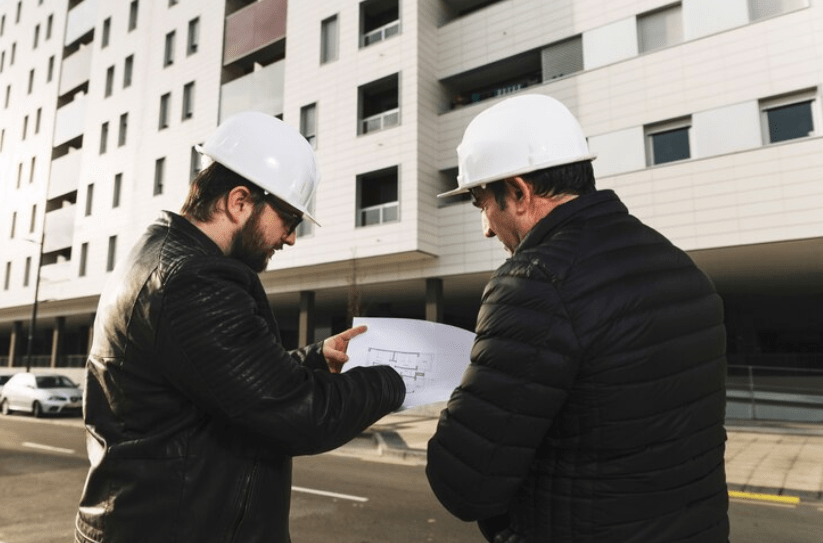Buying a home is often one of the most significant investments individuals make in their lifetime. It’s not merely a financial transaction; it’s a decision that shapes one’s living environment, financial stability, and future prospects.
Given the stakes involved, it’s imperative for homebuyers to ensure they’re making an informed decision. One crucial step in this process is undertaking a pre-purchase building inspection.
The Risks of Skipping Inspections
Skipping inspections poses significant risks for homebuyers. Without a thorough assessment, they may unwittingly purchase properties with hidden structural issues, safety hazards, or legal and financial liabilities. These undisclosed defects can lead to costly repairs, compromise safety, and even result in legal disputes.
Pre-purchase building inspection serves as a vital safeguard, helping buyers make informed decisions and avoid potential pitfalls. To ensure a thorough and reliable inspection process, consider experts like “One Stop Inspections” who offer comprehensive services tailored to your needs.
Unforeseen Structural Issues
Without a thorough building inspection, homebuyers risk purchasing a property with hidden structural issues. These issues may include foundation problems, compromised walls or roof, or substandard construction.
Such defects, if undetected, can lead to significant repair costs down the line, disrupting one’s financial plans and causing immense stress.
Safety Hazards
Identifying safety hazards like faulty electrical wiring, asbestos, or mold is paramount before purchasing a property. These hazards pose significant risks to the health and safety of occupants.
Faulty wiring can lead to electrical fires, while asbestos exposure can cause severe respiratory illnesses like mesothelioma. Similarly, mold infestations can trigger allergies and respiratory problems.
By uncovering these hazards through pre-purchase inspections, homebuyers not only safeguard their investment but also prioritize the well-being of their future occupants, fostering a safe and healthy living environment for years to come.
Legal and Financial Ramifications
Failure to conduct a pre-purchase building inspection can expose homebuyers to significant legal and financial risks. In certain jurisdictions, buyers might be legally accountable for undisclosed defects found post-sale, leading to expensive litigation and potential depreciation of the property’s worth.
Moreover, many lenders mandate a building inspection before approving a mortgage. This requirement underscores the critical role inspections play in the homebuying process, serving as a safeguard for both buyers and lenders against unforeseen structural issues and associated liabilities.
Expert Advice on Pre-Purchase Building Inspections
Expert advice on pre-purchase building inspections emphasizes early detection of issues, negotiation leverage, and peace of mind for homebuyers.
By hiring qualified inspectors, undergoing comprehensive examinations, and carefully reviewing detailed reports, buyers can make informed decisions about their investments, negotiate effectively with sellers, and proceed with confidence in their home purchases.
Early Detection of Issues
Pre-purchase building inspections offer invaluable early detection of potential issues. Professional inspectors possess the expertise to uncover structural defects, safety hazards, and other concerns often invisible to untrained eyes.
This proactive approach empowers homebuyers to address problems before committing to the purchase, facilitating negotiations for repairs or even reconsideration of the investment altogether. By taking action upfront, buyers can avoid costly surprises down the road, saving both time and money while ensuring a more secure and informed home buying journey.
Negotiating Power
Having the findings of a building inspection report empowers homebuyers during negotiations. Should significant defects surface, buyers can leverage this information to either renegotiate the purchase price to reflect the necessary repairs or request the seller to rectify the issues prior to finalizing the sale.
This proactive approach safeguards buyers from unforeseen expenses after acquisition and fosters transparency in the transaction. Ultimately, it promotes fairness, ensuring that both parties are fully aware of the property’s condition and can proceed with the deal confidently.
Peace of Mind
This peace of mind stems from the assurance that potential issues have been thoroughly assessed and addressed before committing to the purchase. With the knowledge that their investment is sound and free from hidden defects, homebuyers can envision a future in their new property without the nagging worry of unforeseen problems arising.
This sense of confidence not only enhances their overall satisfaction with the purchase but also fosters a sense of security and stability in their homeownership journey, laying a solid foundation for years to come.
The Inspection Process: What to Expect
During the inspection process, a qualified inspector conducts a thorough examination of the property, assessing its structural integrity, electrical and plumbing systems, roof, foundation, and safety hazards.
They may use specialized tools like moisture meters and thermal imaging cameras. Following the inspection, the inspector provides a detailed report with findings, including photographs and recommendations for further action.
Hiring a Qualified Inspector
When embarking on the journey of a pre-purchase building inspection, selecting the right inspector is paramount. A qualified and experienced inspector possesses the expertise necessary to uncover potential issues that could otherwise go unnoticed.
Ensuring the inspector is licensed, insured, and well-versed in local building codes guarantees a thorough examination of the property. Homebuyers can leverage recommendations from their real estate agent or conduct independent research to identify reputable inspectors, thereby setting the stage for a comprehensive and reliable inspection process.
Comprehensive Examination
During the inspection, the inspector will conduct a comprehensive examination of the property, both inside and out. This includes examining the structural integrity of the building, inspecting electrical and plumbing systems, assessing the condition of the roof and foundation, and identifying any safety hazards or code violations.
The inspector may also use specialized tools and equipment, such as moisture meters and thermal imaging cameras, to detect hidden issues.
Detailed Report
Following the inspection, the inspector will provide the homebuyer with a detailed report outlining their findings. This report will typically include photographs, descriptions of any defects or deficiencies, and recommendations for further action.
Homebuyers should review the report carefully and consult with their real estate agent or legal advisor to determine the appropriate course of action.
Conclusion
In conclusion, pre-purchase building inspections are a crucial step in the homebuying process that should not be overlooked. From identifying hidden defects to providing peace of mind, the benefits of building inspections are undeniable.
By investing in a thorough inspection upfront, homebuyers can mitigate risks, negotiate effectively, and make informed decisions that protect their investment and ensure their future happiness and safety in their new home.



